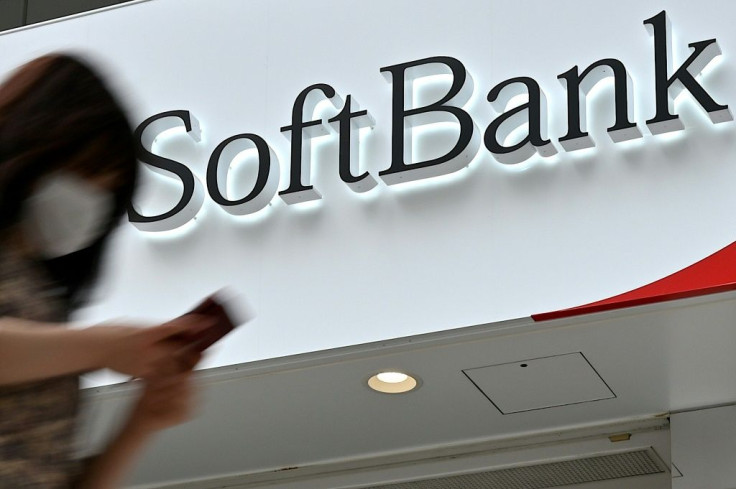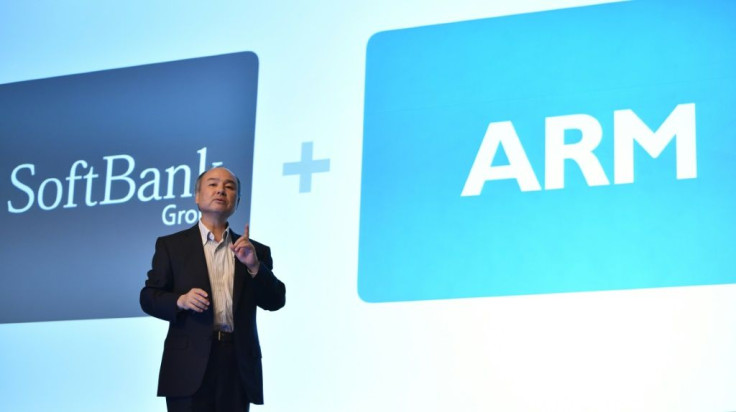SoftBank Group Selling Arm To NVIDIA For Up To $40 Billion
Japan's SoftBank Group said Monday it is selling British chip designer Arm to US firm NVIDIA for up to $40 billion, potentially creating a new giant in the industry but sparking an investigation by UK regulators and fears about the impact on jobs.
If approved, the deal will be one of the largest acquisitions anywhere in the world this year and propel NVIDIA to the forefront of the semiconductor sector.
The announcement also renewed speculation about SoftBank Group's future, with Bloomberg News reporting it is set to revive talks about going private via a management buyout plan.
The Arm sale is valued at up to $40 billion and is subject to approval by authorities in several jurisdictions, including Britain, China, the United States and the European Union, SoftBank Group said in a statement.
It hopes the deal will be completed by around March 2022, it added.
British Prime Minister Boris Johnson's spokesman confirmed UK regulators were looking into the deal, and its implications for Arm's headquarters in the university city of Cambridge, eastern England.
The company's co-founder, Hermann Hauser, meanwhile wrote to Johnson voicing fears about jobs and Britain becoming "collateral damage" in the US trade war with China.

"Arm powers the smartphones of Apple, Samsung, Sony, Huawei and practically every other brand in the world and therefore can exert influence on all of them," he said.
"Surrendering UK's most powerful trade weapon to the US is making Britain a US vassal state."
SoftBank Group shares soared in early morning trade in Tokyo, rising by almost 10 percent at one point. They ended the day up 8.95 percent to 6,385 yen.
Founded in 1990, Arm specialises in microprocessors and dominates the global smartphone market. But its chips are also found in countless sensors, smart devices and cloud services.
NVIDIA, well known for graphics cards favoured in the video game industry, has seen sales skyrocket during the coronavirus crisis, with gaming a popular pastime in lockdown.
Its products are also increasingly used for artificial intelligence and in data centres.

SoftBank bought Arm in 2016 for $32 billion in a deal that left investors cold and saw the conglomerate's stock plunge sharply.
Analysts at the time said SoftBank had paid too much for the firm and the purchase revived concerns about the Japanese company's balance sheet.
Amir Anvarzadeh, senior market strategist at Asymmetric Advisors in Singapore, said Arm had been "underperforming", making the sale more attractive for SoftBank.
But he said the acquisition was "going to raise some eyebrows" in the semiconductor industry, because so many of NVIDIA's competitors work with Arm's designs.
"They will need some guarantees... otherwise Arm may lose business or face lawsuits," he said.
NVIDIA said in a statement that under the deal it will pay SoftBank $21.5 billion in common stock and $12 billion in cash, $2 billion of which will be payable at signing.
SoftBank may receive up to another $5 billion in cash or stock, dependent on Arm's performance.
And NVIDIA will also issue $1.5 billion in equity to Arm employees, for a deal worth a total of up to $40 billion.
SoftBank said it felt Arm would perform better in combination with NVIDIA and the sale would "contribute to an increase in our company's value for shareholders".
It said the deal would give it a combined total of 6.7-8.1 percent of NVIDIA's outstanding shares, but insisted that would not make the US firm a subsidiary or affiliate.
NVIDIA said the acquisition would help "create the premier computing company for the age of artificial intelligence".
It said Arm would retain its name and remain in Cambridge in the UK, where a new global centre for excellence in AI will be set up.
The sale, which comes as SoftBank engages in a massive push to boost its cash reserves, renewed speculation about the firm's future plans.
Bloomberg News, citing unnamed people familiar with the matter, said senior SoftBank executives planned to revisit a management buyout, which had previously met with internal opposition, but discussions were an early stage.
© Copyright AFP 2024. All rights reserved.





















